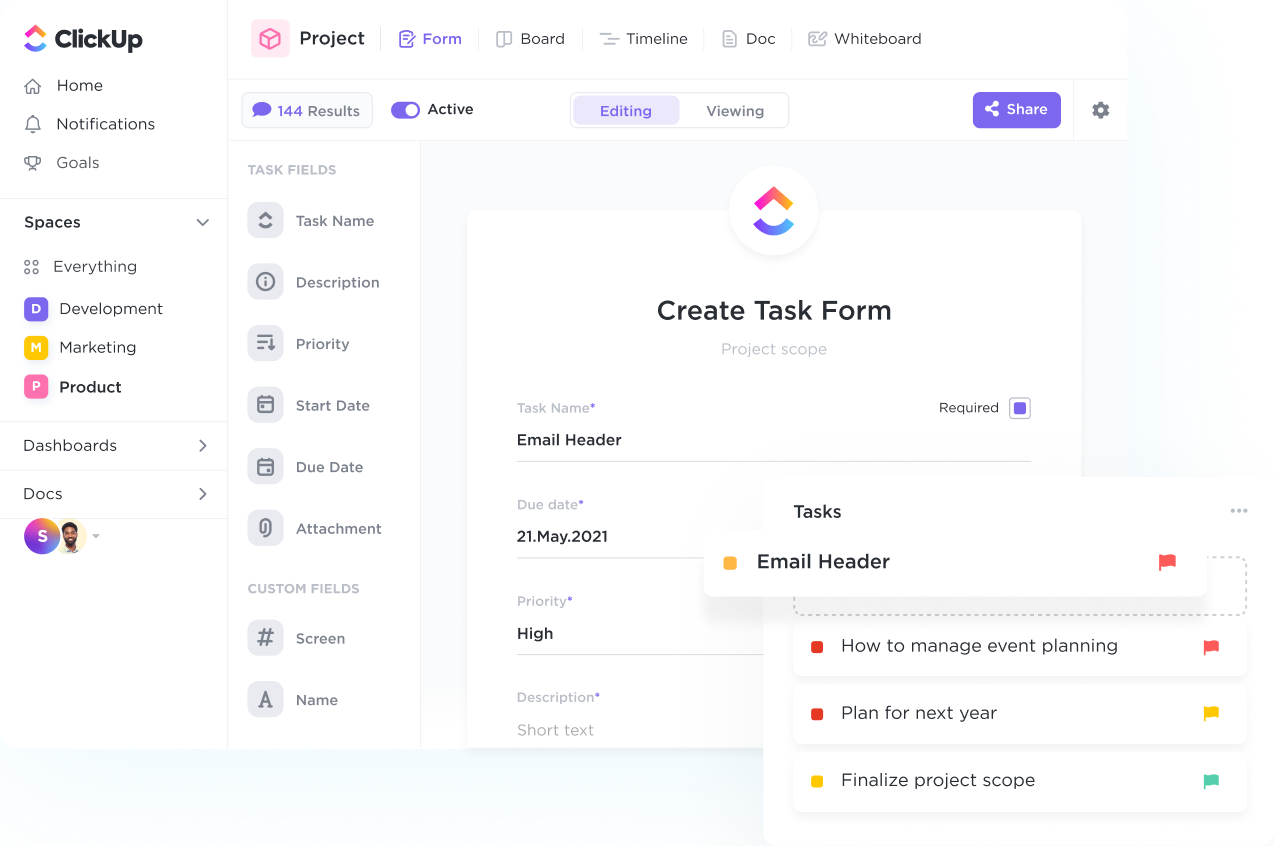Onboard customers and collect info in a snap.
Streamline your intake process, organize response data, and automatically create tasks with custom branded Forms powered by conditional logic.

Streamline your academic research process with ClickUp's customizable CRM system designed specifically for researchers. Stay organized, manage projects efficiently, and enhance collaboration with your team all in one place. Experience seamless integration and advanced features that will revolutionize the way you conduct research. Try ClickUp now and take your academic projects to the next level.
Free forever.
No credit card.
Trusted by the world’s leading businesses
Streamline your intake process, organize response data, and automatically create tasks with custom branded Forms powered by conditional logic.

Manage everything from sales pipelines, customer engagement, and orders with ClickUp's 10+ highly flexible views. Easily track and manage your accounts on a List, Kanban Board, Table view, and more.

CRM software can help academic researchers by organizing and managing research contacts, tracking communication history, scheduling follow-ups, and centralizing project-related information for easier collaboration and efficient project management.
Key features of CRM software beneficial for academic researchers include managing research contacts, tracking communication history, organizing research data, scheduling appointments, and generating reports for research progress and funding purposes.
Yes, CRM software can be integrated with various research tools and platforms commonly used by academic researchers, allowing for streamlined data management, improved collaboration, and enhanced research outcomes.